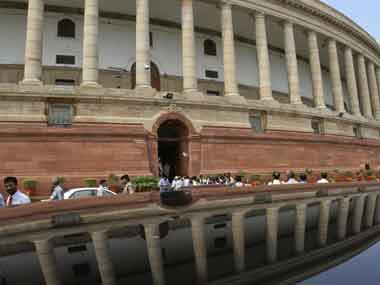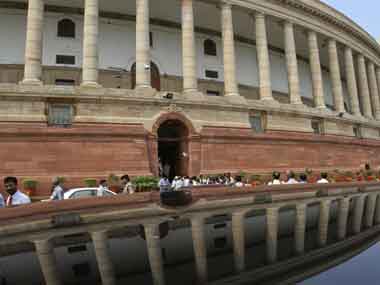There is something rotten in the (non-)functioning of Parliament. And it isn’t simply about ‘irresponsible’ MPs, the usual target of critical commentary. Of course, the repeated stalling of both Houses of Parliament is an enormous waste of taxpayers’ money. It is also an abdication of duty by that most sacred temple of democracy. But just for a moment, consider the matter from the viewpoint of the MPs who choose to create a din, storm the well and force the adjournment of the House. They do so to make their viewpoints heard. They do so because Parliament has been so disempowered that MPs have few legitimate means to exercise their legitimate powers as representatives of the people. The time has come to stop merely criticizing MPs but to rethink the way Parliament functions in India. The primary job of the legislature in a democracy is to hold the executive accountable. This is easier done in US-style presidential system where the executive is completely separated from the legislature – the elections to the two institutions are separate and no members of the executive serve in the legislature. In the Westminster parliamentary style of democracy adopted by India, enforcing accountability is more complicated. For one, the ruling party/coalition has the weight of the numbers clearly in its favour. Second, all the members of the executive have to be members of the legislature. So, if the executive wishes to bulldoze things by the exercise of brute majority, it can.[caption id=“attachment_1026401” align=“alignleft” width=“380”]  Parliament of India. Reuters[/caption] In theory, there are checks built into the system but parties must allow them to work. The institution of the ‘party whip’ , for example, is grossly misused in India. Parties, particularly those in government, are prone to issuing whips in all legislative matters. This forces MPs to toe the party line on all issues. If they vote against the whip they are disqualified from parliament via the enforcement of the anti-defection law. This law was ostensibly legislated to prevent horse-trading in Parliament by making it almost impossible for MPs to defect from their party without losing their seats. The anti-defection law may have worked well by itself but when combined with the whip, it is anti-democratic. It then forces MPs to resort to shouting, storming and stalling. For example, when voting happens on Telangana there should be no whip. That would allow the Congress MPs from the Seemandhra region to register their dissent through perfectly legitimate means. After all, that is what their constituents would like them to do. Similarly, on other policy issues, say the left-leaning Food Security Bill or the right-leaning Insurance Bill, parties should allow MP’s to vote for what they think is right. Needless to say, it is the job of party leaders to persuade their MPs to vote with the party line. It makes for harder work than issuing a whip, but democracy requires party leaderships to make that extra effort. It also requires room for the expression for dissent without disruption. In the UK, there are countless instances of ruling party MPs rebelling against their own leadership on policy issues. It allows democratisation within parties so absent from India. The only matter on which a whip is legitimate is a vote of confidence which could determine the survival of the government. For all other matters, the use of whips must be very limited. There are other ways in which MPs can be empowered. The parliamentary committee system in India is moribund. It needs to be revitalised. Certain key institutions, which ought to be autonomous from the executive like the CBI and RBI (there are plenty of other examples, regulatory bodies like Trai and Irda for instance), should be made directly accountable to parliamentary committees. MPs cutting across party lines should demand the highest levels of accountability and performance from these institutions. The heads of such institutions should regularly testify before parliamentary committees and answer tough questions. This would ensure that these important institutions are insulated from the partisan executive, yet accountable in the democratic framework. It would also give real power to MPs. But the UPA would not even consider doing this lest it lose its iron grip over all levers of power. The political class in India, particularly the ruling UPA, needs an urgent reminder that the people of India elect Parliament not just to enable the formation of a government but to ensure that their diverse voices are heard through their elected MPs over five years. The executive, or indeed any political party, cannot be allowed to throttle these voices and to use Parliament as a rubber stamp for chosen policies. The UPA has, of course excelled in incompetence and corruption and then ensured that Parliament does nothing about it. You just need to look at the way it used partisan politics and the arithmetic of numbers to subvert the proper functioning of the Public Accounts Committee (PAC) and the JPC in the 2G scam case. The UPA’s epic misgovernance and brazen unwillingness to accept it, has brought the people of India out on to the streets more than once. Why is it so surprising that it has forced disempowered MPs to storm the well of the House ever so often?
The UPA’s epic misgovernance and brazen unwillingness to accept it, has brought the people of India out on to the streets more than once.
Advertisement
End of Article


)
)
)
)
)
)
)
)
)



